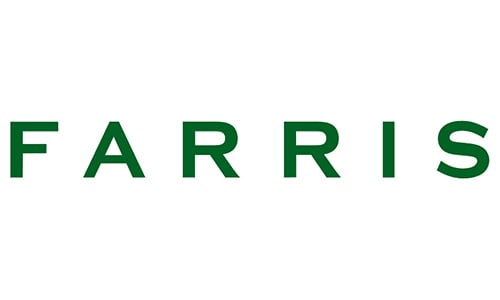On June 23, 2023, amendments to Canada’s Competition Act came into force that prohibit agreements between employers to fix wages (or other terms and conditions of employment) or not hire each other’s employees. The amendments bring criminal competition law offences into the employment sphere. Businesses may not be aware that competition law now governs their employment relationships. Labour and employment lawyers will need to learn and stay apprised of a new area of law.
The discussion below provides an overview of the amendments and is not legal advice. Employers should contact a lawyer in their jurisdiction for advice specific to their business. Breaching these provisions can carry serious consequences.
What has changed?
The new section 45(1.1) makes it a criminal offence for employers to conspire, agree or arrange to fix, maintain, decrease, or control wages or other terms and conditions of employment or to not solicit or hire each other’s employees.
The new offence has the following elements:
- The accused is an employer (which can include a company’s directors, officers, agents, and employees such as human resource professionals);
- who conspired, agreed, or arranged;
- with another employer who is not affiliated with that person;
- to:
- fix, maintain, decrease or control salaries, wages or terms and conditions of employment; or
- not solicit or hire each other’s employees.
There is no requirement that the parties to the alleged agreement be competitors in respect of the products or services they sell.
The amendments significantly expand the scope of the Competition Act offences. While the Competition Tribunal could previously issue civil remedies in respect of a wage fixing or no-poaching agreement, the conspiracy, agreement or arrangement had to be between competitors and it had to be likely to prevent or lessen competition substantially in a market. This requirement made it difficult to obtain a civil remedy.
What about affiliated companies?
The new offence does not apply to agreements between affiliated entities. For example, Company A and Company B, who are both wholly-owned subsidiaries of Company C, may agree not to hire each other’s employees.
The Competition Act contains specific definitions of affiliation, subsidiaries, and control. Before entering into a potentially prohibited agreement in reliance on this exception, employers should seek legal advice about whether their corporate structure meets the definition of affiliate.
What is a conspiracy, agreement, or arrangement?
The Federal Court recently described this element in detail in Difederico v. Amazon.com, Inc., 2023 FC 1156, at paras. 37-39, in respect of section 45(1) of the Competition Act, which uses the same language. A conspiracy, arrangement, or agreement exists where there is a meeting of the minds. Once there is an agreement, the offence has been committed. There is no need for the parties to take any action under the agreement.
It is not an offence for multiple employers to independently take the same action at around the same time, so long as there is no conspiracy, agreement or arrangement and no coordination or sharing of non-public information between them that facilitated their parallel action. However, parallel action might be used as evidence of an agreement.
What is the impact on non-solicitation clauses?
The Competition Bureau’s Enforcement Guidelines (which are non-binding) state that the “no-poaching” agreement offence only prohibits reciprocal agreements between employers to not hire each other’s employees, not one-way agreements. A one-way non-solicitation of employees clause in a contract of employment is still allowed. Similarly, if Company A and Company B agree that Company B will not hire Company A’s employees, but Company A remains free to hire Company B’s employees, that one-way agreement is allowed. However, Company A and Company B may not agree to not hire each other’s employees.
What if a wage fixing or no-poach agreement is a necessary part of a legitimate business transaction?
The Competition Act provides a defence for “ancillary restraints”. This defence allows restraints on competition that are reasonably necessary for achieving the objective of a desirable transaction or collaboration that they are ancillary to. The Competition Bureau’s Enforcement Guidelines give the example of no-poaching clauses in “franchise agreements and certain service provider-client relationships, such as staffing or IT service contracts”. Reasonably necessary coordination relating to shared, multiple employer pension or benefits plans might also be protected by this defence.
In all cases, the constraint must be no broader than necessary to achieve the objective, the desirable transaction must be genuine, and the desirable transaction must not, considered alone, contravene section 45 of the Competition Act. Employers considering entering into a potentially prohibited agreement as part of a broader or separate agreement or arrangement should seek legal advice about the application of this defence.
What about collective bargaining?
The Competition Act does not apply to certain collective bargaining activities, including “contracts, agreements or arrangements between or among two or more employers in a trade, industry or profession… pertaining to collective bargaining with their employees in respect of salary or wages and terms or conditions of employment” (Competition Act, section 4(1)(c)).
Although this is broad language, there is very little case law interpreting this exception. It is unclear whether a court would allow, for example, an agreement between unionized employers to coordinate their bargaining proposals. Until there is a definitive judicial decision on this point, unionized employers should tread carefully when sharing non-public information with other employers about terms and conditions of employment.
What are the consequences of breaching the provision?
If convicted, an individual can face up to 14 years in prison. The court may also fine an individual or company.
Section 36 of the Competition Act also creates a private right of action for breach of the offence provisions, so companies could face civil claims for damages as well (including class actions).
Because of the severity of the potential consequences, it would be in an employer’s best interests to seek legal advice before communicating with other employers about wages or other terms and conditions of employment.
What should employers do?
Given that the offence can be proved via circumstantial evidence, employers should be very careful about their communications and agreements with other employers relating to terms and conditions of employment or hiring of employees. For example, evidence of sharing non-public wage information or of two employers refusing to hire applicants who are employed by the other employer could be used to prove a prohibited agreement or arrangement.
Above all, employers should avoid coordinating their terms and conditions of employment and should seek legal advice before entering into agreements with other employers relating to their employees.
***
 Allison Render is a member of Farris’ litigation group, and primarily practices in the area of civil and commercial litigation, as well as maintaining an administrative and regulatory law practice. She has appeared in the British Columbia Supreme Court and Court of Appeal, the British Columbia Labour Relations Board, and the Canada Industrial Relations Board. Allison’s employment and labour practice involves a range of workplace matters including human rights, privacy, occupational health and safety, wrongful dismissals, and labour arbitration. She has a particular interest in appellate advocacy.
Allison Render is a member of Farris’ litigation group, and primarily practices in the area of civil and commercial litigation, as well as maintaining an administrative and regulatory law practice. She has appeared in the British Columbia Supreme Court and Court of Appeal, the British Columbia Labour Relations Board, and the Canada Industrial Relations Board. Allison’s employment and labour practice involves a range of workplace matters including human rights, privacy, occupational health and safety, wrongful dismissals, and labour arbitration. She has a particular interest in appellate advocacy.





